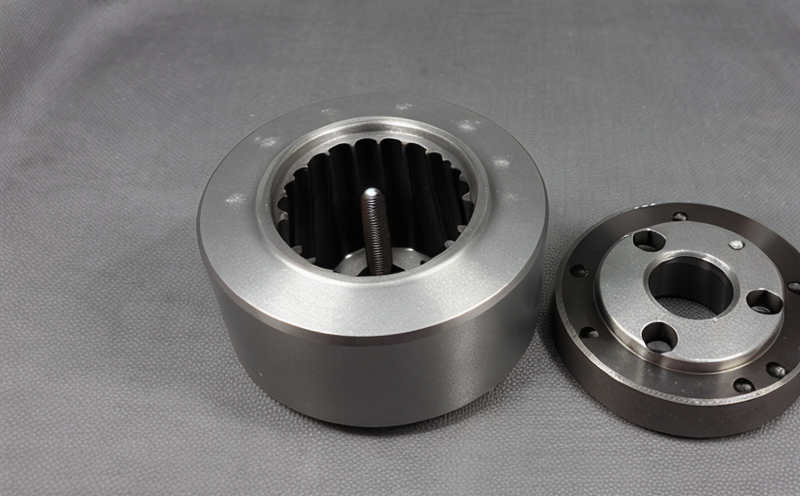ASTM B703 Tap Density of Metal Powders
The ASTM B703 standard provides a method for determining the tapped density of metal powders, which is essential in industries where powder behavior and flow characteristics are critical. This test ensures that manufacturers and researchers can accurately predict how metals will behave under various conditions, such as during processing or within end-use applications.
The ASTM B703 tap density test involves compacting a sample of metal powder into a cylindrical container using a specific tapping device until the volume no longer changes. The mass of this compacted sample is then measured, allowing for the calculation of the tapped density based on the formula:
\[ \text{Tapped Density (g/cm³)} = \frac{\text{Mass of Tamped Sample}}{\text{Volume of Cylindrical Container}} \]This test is particularly important in sectors like aerospace, automotive, and electronics manufacturing. In these industries, the quality of metal powders directly impacts product performance and reliability. For instance, powder with an incorrect tap density may result in poor flowability during additive manufacturing processes or inconsistent coating thicknesses.
The precision required for this test is further emphasized by the fact that small variations in tap density can lead to significant differences in processing efficiency and final product quality. Therefore, ASTM B703 ensures consistency across batches of powder, enabling manufacturers to meet stringent quality control standards.
In addition to its role in manufacturing processes, ASTM B703 is also crucial for research purposes. Researchers often use this test to compare the properties of different types of metal powders or to study how specific alloy compositions affect tap density and other key parameters. This information can then be used to optimize powder formulations for various applications.
The test procedure described in ASTM B703 is straightforward but requires careful execution to ensure accurate results. Specimens must be prepared according to the specified dimensions, and the tapping device should meet certain criteria to avoid introducing bias into the measurements. The precision of the scale used for weighing the tapped sample is also critical, as even small errors can lead to significant discrepancies in calculated tap densities.
Understanding the nuances of ASTM B703 is vital not only for those involved directly in powder metallurgy but also for anyone working with metal powders. Whether you are a quality manager ensuring adherence to industry standards or an R&D engineer developing new materials, familiarity with this test can provide valuable insights into the behavior and potential uses of your metal powders.
Applied Standards
- American Society for Testing and Materials (ASTM) B703-18 Standard Practice for Determining Tapped Density of Metal Powders
The ASTM B703 standard provides a detailed protocol for determining the tapped density of metal powders. This includes specific procedures for sample preparation, tapping apparatus calibration, and measurement techniques to ensure accuracy and reproducibility.
By adhering strictly to these standards, laboratories can ensure that their results are comparable with those from other reputable testing facilities around the world. This is particularly important given the global nature of many metal powder manufacturing and research operations.
Benefits
- Quality Assurance: Ensures consistent product quality by providing accurate measurements of tap density, which is crucial for maintaining uniformity across batches.
- Process Optimization: Helps identify optimal processing conditions by correlating tap density with other process parameters such as flowability and compactibility.
- R&D Support: Facilitates research into the properties of metal powders, enabling the development of new alloys and materials with enhanced performance characteristics.





